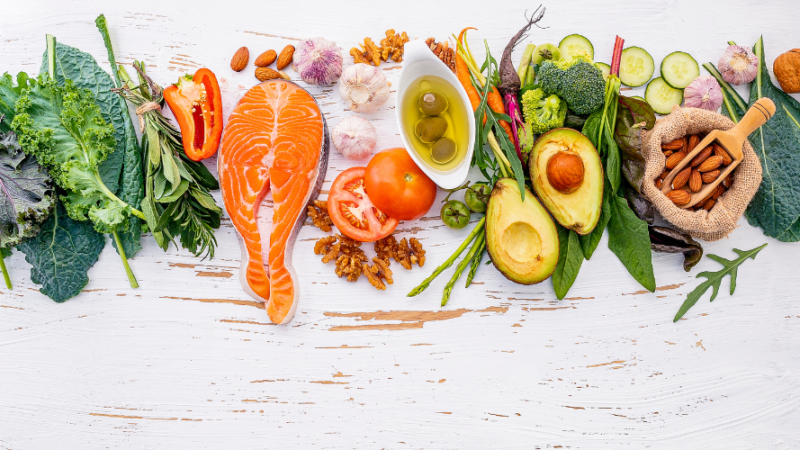Top 13 Health Benefits of Cinnamon Tea

Have you ever considered adding a cup of cinnamon tea to your daily routine? Beyond its delightful aroma and comforting warmth, cinnamon tea boasts a myriad of health benefits that may surprise you.
From aiding digestion to supporting heart health, this ancient spice offers a wealth of goodness packed into a single cup. Join us as we explore the fascinating world of cinnamon tea and uncover its remarkable health benefits.
- Anti-Inflammatory Properties: Cinnamon tea contains compounds with potent anti-inflammatory properties, which can help reduce inflammation in the body. Chronic inflammation is linked to various health conditions, including arthritis, cardiovascular disease, and autoimmune disorders. Drinking cinnamon tea regularly may help alleviate inflammation and promote overall health and well-being.
- Antioxidant Effects: Cinnamon is rich in antioxidants, such as polyphenols and flavonoids, which help neutralize free radicals and prevent oxidative damage to cells and tissues. Antioxidants play a crucial role in protecting against chronic diseases, supporting immune function, and promoting healthy aging. Drinking cinnamon tea can boost your antioxidant intake and support your body’s defense against oxidative stress.
- Blood Sugar Regulation: Cinnamon tea may help regulate blood sugar levels by improving insulin sensitivity and reducing insulin resistance. Studies have shown that cinnamon can lower fasting blood sugar levels and improve glycemic control in individuals with diabetes or insulin resistance. Drinking cinnamon tea regularly may help stabilize blood glucose levels and reduce the risk of complications associated with diabetes.
- Heart Health Support: Regular consumption of cinnamon tea may benefit heart health by reducing risk factors such as high cholesterol and blood pressure. Cinnamon has been shown to improve lipid profiles, lower triglyceride levels, and enhance circulation, which can promote cardiovascular health and reduce the risk of heart disease.
- Digestive Aid: Cinnamon tea can aid digestion and alleviate gastrointestinal discomfort, including bloating, gas, and indigestion. The warming properties of cinnamon can help stimulate digestion, improve nutrient absorption, and relieve symptoms of digestive distress. Drinking cinnamon tea after meals may promote healthy digestion and reduce digestive discomfort.
- Immune System Boost: Cinnamon tea is rich in immune-boosting compounds that can help strengthen the body’s defenses against infections and illnesses. The antimicrobial and antiviral properties of cinnamon can help protect against pathogens and support immune function. Drinking cinnamon tea regularly may help reduce the risk of colds, flu, and other respiratory infections.
- Weight Management Support: Some studies suggest that cinnamon may aid in weight management by boosting metabolism and reducing cravings for sugary foods. Cinnamon tea can help regulate blood sugar levels and improve insulin sensitivity, which may contribute to weight loss or weight maintenance efforts. Incorporating cinnamon tea into a balanced diet and exercise routine may support healthy weight management.
- Cognitive Enhancement: Cinnamon may have cognitive-enhancing effects and may help improve memory, concentration, and overall brain function. The antioxidant and anti-inflammatory properties of cinnamon can protect brain cells from damage and support cognitive health. Drinking cinnamon tea regularly may help enhance cognitive function and reduce the risk of age-related cognitive decline.
- Respiratory Health Support: Cinnamon tea can provide relief from respiratory symptoms such as cough, congestion, and sore throat. The warming properties of cinnamon can help soothe inflamed airways, promote mucus clearance, and reduce respiratory discomfort. Drinking cinnamon tea may help alleviate symptoms of respiratory infections and support respiratory health.

- Oral Health Benefits: Cinnamon tea may offer oral health benefits, including reducing bad breath, preventing tooth decay, and combating oral infections. The antimicrobial properties of cinnamon can help inhibit the growth of bacteria in the mouth, while its anti-inflammatory effects can reduce gum inflammation and promote oral health. Drinking cinnamon tea may contribute to a healthy mouth and fresh breath.
- Pain Relief: Cinnamon tea may have analgesic properties and may help relieve pain associated with conditions such as arthritis, menstrual cramps, and headaches. The anti-inflammatory effects of cinnamon can help reduce pain and inflammation in the body, while its warming properties can provide soothing relief. Drinking cinnamon tea regularly may help alleviate pain and improve overall comfort.
- Mood Enhancement: Cinnamon tea may have mood-enhancing effects and may help reduce symptoms of depression, anxiety, and stress. The aroma of cinnamon has been shown to have mood-boosting properties, while its antioxidant and anti-inflammatory effects can support brain health and emotional well-being. Drinking cinnamon tea may help promote relaxation, reduce stress levels, and enhance mood.
- Skin Health Benefits: Cinnamon tea may promote skin health and may help improve the appearance of the skin. The antimicrobial and anti-inflammatory properties of cinnamon can help combat acne, reduce inflammation, and promote healing. Drinking cinnamon tea regularly may help improve skin complexion, reduce blemishes, and support overall skin health.
Recommended – What is Guava Leaf Tea and Its Benefits?
Tips For Brewing The Perfect Cinnamon Tea
Brewing a cup of cinnamon tea is not only a delightful way to enjoy the warm, spicy flavors of cinnamon but also an opportunity to reap its numerous health benefits. Whether you’re a seasoned tea enthusiast or new to the world of cinnamon tea, mastering the art of brewing the perfect cup can elevate your tea-drinking experience.
Start with Quality Ingredients: The key to brewing delicious cinnamon tea starts with high-quality ingredients. Choose fresh, aromatic cinnamon sticks or high-quality ground cinnamon to ensure the best flavor and aroma. Opt for organic or sustainably sourced cinnamon for optimal taste and health benefits.
Use Fresh, Filtered Water: Use fresh, filtered water to brew your cinnamon tea. Water quality can significantly impact the taste and purity of your tea. Avoid using tap water that may contain impurities or chlorine, as it can affect the overall flavor of your tea.
Select the Right Tea Leaves: Cinnamon tea can be brewed using various types of tea leaves, such as black tea, green tea, or herbal tea blends. Choose a tea variety that complements the warm, spicy flavors of cinnamon and enhances its natural sweetness. Experiment with different tea blends to find your perfect combination.
Measure the Ingredients: Measure the ingredients carefully to achieve the perfect balance of flavors in your cinnamon tea. Use one cinnamon stick or one teaspoon of ground cinnamon per cup of water, depending on your preference for strength and intensity of flavor.

Infuse the Cinnamon Flavor: To infuse the cinnamon flavor into your tea, add the cinnamon sticks or ground cinnamon to the teapot or infuser along with the tea leaves. Allow the cinnamon to steep in hot water for several minutes to release its aromatic oils and flavors.
Control the Steeping Time: Steeping time plays a crucial role in determining the strength and flavor profile of your cinnamon tea. Steep the tea leaves and cinnamon sticks for the recommended time, usually between 3 to 5 minutes, to achieve the desired flavor intensity. Avoid over-steeping, as it can result in a bitter or astringent taste.
Enhance with Natural Sweeteners: For added sweetness, consider enhancing your cinnamon tea with natural sweeteners such as honey, maple syrup, or stevia. Sweeteners can complement the spicy notes of cinnamon and create a more balanced and enjoyable flavor profile.
Serve and Enjoy: Once the tea is steeped to perfection, strain the tea leaves and cinnamon sticks, and pour the fragrant brew into your favorite teacup or mug. Take a moment to savor the warm, comforting aroma and indulge in the soothing flavors of cinnamon tea.
Cinnamon Tea Nutritional Facts
Cinnamon tea is not only a flavorful and aromatic beverage but also offers several nutritional benefits. While the exact nutritional content may vary depending on factors such as the type of tea leaves used and any additional ingredients, here are some general nutritional facts about cinnamon tea:
Calories: Cinnamon tea is typically low in calories, making it a suitable option for those looking to manage their calorie intake. On average, a cup of cinnamon tea brewed without any added sweeteners contains approximately 0-5 calories.
Carbohydrates: Cinnamon tea contains minimal carbohydrates, primarily from the tea leaves and any natural sugars present in the cinnamon. The carbohydrate content is typically less than 1 gram per serving.
Fiber: Cinnamon tea may provide a small amount of dietary fiber, especially if brewed with ground cinnamon or cinnamon sticks. However, the fiber content is usually minimal, with less than 1 gram per serving.
Antioxidants: Cinnamon tea is rich in antioxidants, which help protect the body from oxidative stress and damage caused by free radicals. Antioxidants in cinnamon tea may include polyphenols, flavonoids, and other bioactive compounds that have various health-promoting effects.
Essential Nutrients: While cinnamon tea is not a significant source of essential nutrients, it does contain trace amounts of certain vitamins and minerals, including manganese, calcium, and iron. These nutrients contribute to overall health and well-being, albeit in small quantities.
Cinnamon Tea Side Effects
While cinnamon tea offers numerous health benefits, it’s essential to be aware of potential side effects, especially when consumed in large quantities or by certain individuals. Here are some common side effects of cinnamon tea:
Allergic Reactions: Some individuals may be allergic to cinnamon, experiencing symptoms such as itching, swelling, hives, or difficulty breathing after consuming cinnamon tea. If you have a known allergy to cinnamon or related substances, it’s advisable to avoid cinnamon tea altogether.
Stomach Irritation: Cinnamon contains compounds that may irritate the stomach lining, leading to gastrointestinal discomfort, such as nausea, stomach cramps, or diarrhea. Drinking cinnamon tea on an empty stomach or in excessive amounts can exacerbate these symptoms.
Liver Damage: High doses of coumarin, a compound found in cinnamon, may have hepatotoxic effects and potentially lead to liver damage or liver disease. Individuals with liver conditions or those taking medications that affect liver function should exercise caution when consuming cinnamon tea.
Blood Sugar Imbalance: While cinnamon tea is often touted for its ability to regulate blood sugar levels, consuming it in large amounts may have the opposite effect, causing fluctuations in blood sugar levels. People with diabetes or hypoglycemia should monitor their blood sugar closely when consuming cinnamon tea and consult with a healthcare professional if necessary.
Interaction with Medications: Cinnamon tea may interact with certain medications, such as blood thinners, diabetes medications, or medications metabolized by the liver. It can affect the efficacy or side effects of these medications, so it’s essential to consult with a healthcare provider before adding cinnamon tea to your routine, especially if you’re taking prescription medications.
Pregnancy Risks: Pregnant women should exercise caution when consuming cinnamon tea, as it may stimulate the uterus and potentially lead to complications, including preterm labor or miscarriage. It’s advisable for pregnant women to avoid cinnamon tea or consult with a healthcare provider before consuming it.
Skin Sensitivity: Direct contact with cinnamon or its essential oil may cause skin irritation or allergic reactions in sensitive individuals. Avoid prolonged skin contact with cinnamon tea or diluted cinnamon oil to prevent skin irritation or allergic dermatitis.
Frequently Asked Questions (FAQs)
Q1. What are the potential effects of drinking cinnamon tea every day?
Drinking cinnamon tea daily offers numerous potential benefits, including anti-inflammatory effects, antioxidant properties, and regulation of blood sugar levels.
Q2. What are the benefits of consuming cinnamon tea regularly?
Regular consumption of cinnamon tea can help manage blood sugar levels, reduce the risk of heart disease, aid in digestion, and boost the immune system.
Q3. Is it beneficial to drink cinnamon tea at night?
Yes, drinking cinnamon tea at night can be beneficial as it offers warming properties that promote digestion and may contribute to better sleep quality.
Q4. When is the optimal time to consume cinnamon tea?
The best time to drink cinnamon tea depends on individual preferences and health goals. Some people may prefer to have it in the morning to boost metabolism, while others enjoy it after meals to aid digestion.
Q5. Who should avoid drinking cinnamon tea?
Pregnant women should avoid cinnamon tea as it may stimulate the uterus, potentially leading to complications that could affect maternal health.
Q6. Can cinnamon tea be consumed on an empty stomach?
Yes, some individuals choose to drink cinnamon tea on an empty stomach, even before breakfast, as it may help regulate blood sugar levels and boost metabolism throughout the day. However, individual tolerance may vary, so it’s essential to monitor how your body responds.






